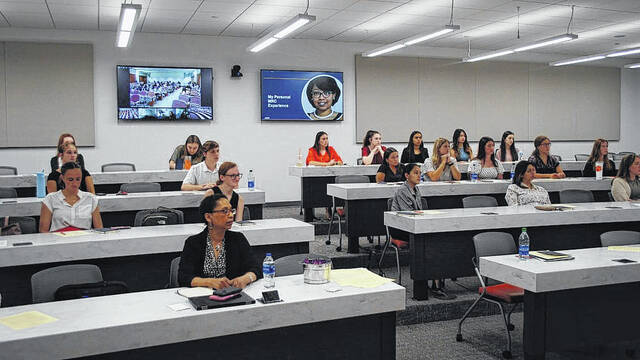PICKENS COUNTY — The Clemson University School of Nursing has received an award of more than $2.7 million to develop a network of diverse undergraduate students who can organize locally to assist communities during disasters and other emergencies.
The students will be prepared to join the South Carolina Public Health Reserve Corps, which provides an opportunity for medical, behavioral health and non-medical volunteers to assist communities during emergency situations.
The grant provides for a multi-institutional collaboration that includes Clemson as well as Benedict College, Claflin University, Coastal Carolina University and Francis Marion University. Each school will engage 100 students during the two-year grant period to join the corps through this initiative.
This workforce development program will introduce students to emergency response and preparedness and is poised to help address the shortage of workers, a problem that the COVID-19 pandemic revealed as the pandemic wore on.
Clemson School of Nursing Director Kathleen Valentine said it is important for higher education institutions to build the capacity for volunteers committed to community well-being and emergency response in order to respond to the increasing number of emergency situations in South Carolina and nationally.
“We also aim to inspire other institutions through our efforts with our academic colleagues to grow this capacity within their communities,” Valentine said. “Working together, and with the support of the South Carolina Department of Health and Environmental Control (SC DHEC) and the CDC, will make a difference in our response to high-level emergencies.”
There are approximately 1,828 volunteers within the South Carolina Public Health Reserve Corps, consisting of 1,287 non-licensed and 641 licensed health and social science professionals. Seeking to expand that workforce, the grant will provide students with discipline-specific clinical experiences and outreach with a focus on health equity and public health emergency management education sponsored by the Federal Emergency Management Agency and South Carolina Department of Health and Environmental Control (CDC).
Students will begin training in Spring 2022 and complete all qualifications within each year of the two-year project. Some of the training modules will include contact tracing certification, program management, behavioral health self-care, social determinants of health, human caring and care of marginalized populations, and global/transcultural health.
Shirley Timmons, project director and Clemson University School of Nursing professor, notes that the project aims to help address health disparities that currently impact too many lower-resourced communities.
“Public health spans the gamut of impacting our lives – from health equity to emergency and disaster management. There is a critical role for all to play – from students to non-students,” Timmons said. “Those gaps in health care resources that were and continue to be exposed during the current pandemic highlight the need for a broader, more diverse, prepared workforce working together to serve the needs of local and global communities. Our project is designed for that end.”
Valentine agrees, noting that the project builds on the School of Nursing’s focus on outreach to vulnerable populations through the Center for Research in Health Disparities, whose board will work with students.
“Students will be able to see national leaders address issues of social determinants of health-related to vulnerable populations, and the board members will lend their expertise and support opportunities to explore collaborative education and practice research,” Valentine said. “These students from diverse disciplines and backgrounds will be important advocates within their communities.”
The project is also an example of how collaboration can bring about meaningful work that improves lives and shapes communities, says Leslie Hossfeld, dean of the Clemson University College of Behavioral, Social and Health Sciences, which is home to the School of Nursing.
“The project brings together students from different universities and people with various areas of expertise for a common goal of helping individuals and communities when they need it the most,” Hossfeld said. “It is a shining example of how our college focuses on building people and communities through partnership and shared vision. I am delighted that students from Clemson and across the state will be able to assist their neighbors as a result of this program.”
This project is supported by the grant, NU90TP922168, funded by the Centers for Disease Control and Prevention. The contents of this publication are solely the responsibility of the authors and do not necessarily represent the official views of the Centers for Disease Control and Prevention or the U.S. Department of Health and Human Services.
For more information, contact Janice Lanham at janicel@clemson.edu.



Leave a Reply